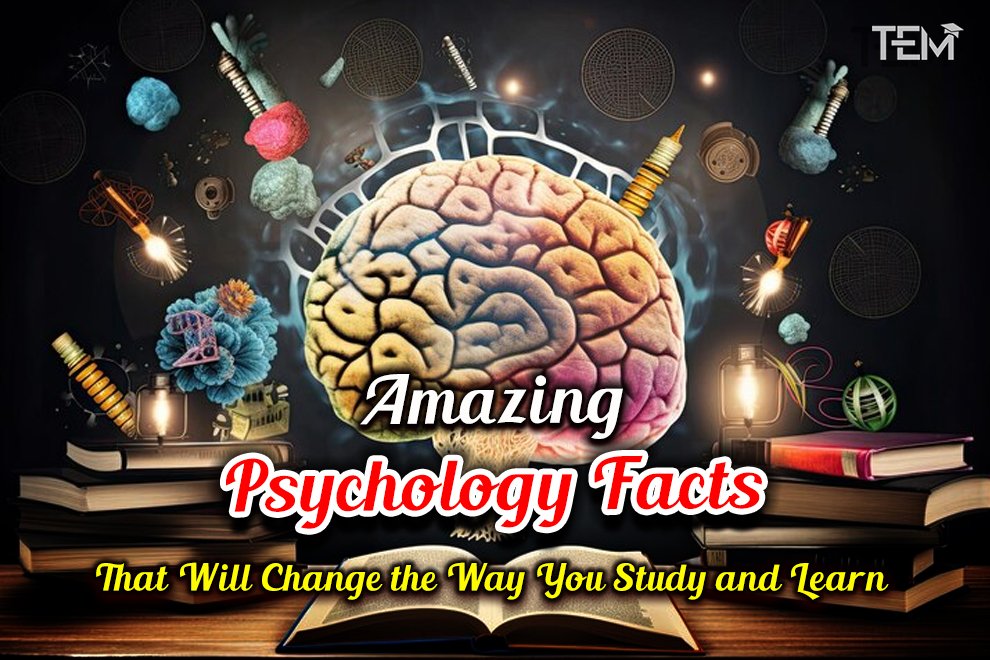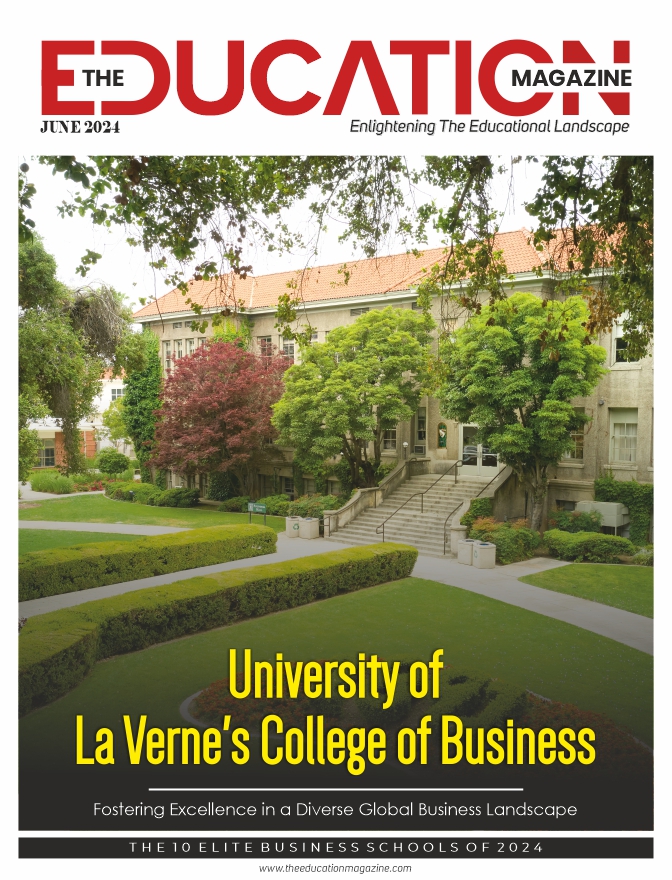“The human mind is like a parachute. It only works when it is open.” – Thomas Dewar
Psychology is the science of the mind and behavior. It helps us understand ourselves and others better and improve our lives in many ways. But how much do you know about psychology facts?
Some of the amazing psychology theories hidden in plain sight might surprise you. These facts reveal the secrets of how we learn, think, feel, and act. They also change the way you study and learn and make you a more effective and successful student.
This blog post will show you 5 amazing psychology facts that will change how you study and learn. These facts are based on scientific research and evidence. They will help you boost your memory, motivation, concentration, creativity, and more. You will also learn how to apply these facts to your learning process and achieve your academic goals faster and more easily.
Here Are Some Of The Interesting Psychology Facts Related To The Way You Study & Learn
1. The Spacing Effect
Have you ever tried to cram a lot of information in one sitting, only to forget most of it the next day? If so, you have experienced the opposite of the spacing effect.
The spacing effect is one of the psychology facts that show that studying the same material over multiple sessions spaced out over time leads to better retention and recall than cramming it in one session.
For example, suppose you have to learn 100 vocabulary words for a test. You could either study all 100 words in one night or study 20 words each night for five nights.
According to the spacing effect, the second option would result in better memory and performance.
Why?
Because you would have more time to review and consolidate the information in your long-term memory.
So, how can you use the spacing effect to study more effectively? Here are some tips and suggestions:
- Plan your study schedule and allocate enough time for each topic or subject. Ideally, you should review the material at least once a week and more frequently before a test or exam.
- Use a variety of study methods and materials, such as flashcards, notes, quizzes, videos, etc. This will help you reinforce the information from different angles and perspectives.
- Review the material in different orders and contexts, such as by difficulty, importance, or relevance. This will help you avoid the illusion of familiarity and overconfidence and enhance your understanding and application of the information.
- Monitor your progress and adjust your study plan accordingly. If you find that you are forgetting or struggling with some concepts or facts, you may need to review them more often or in more depth.
The spacing effect is one of the most powerful and proven ways to improve your learning and memory. But it is not the only one. Another technique that can boost your memory and comprehension even more is the testing effect. This is also a part of psychology facts.
2. The Testing Effect
Imagine a simple and effective way to improve your learning and memory that you can do anytime and anywhere. It sounds too good to be true, but it is not. It is called the testing effect.
The testing effect is another psychology facts that shows that taking practice tests or quizzes on the material you learned boosts your memory and comprehension more than simply reviewing or rereading it.
For instance, suppose you have to learn about the human digestive system for a biology test. You could either review your notes and textbook or take a practice quiz on the topic.
According to the testing effect, the second option would help you remember and understand the information better.
Why?
Because it would force you to actively retrieve and apply the information from your memory, rather than passively absorb it from the source.
The testing effect is real. Dozens of studies show that you will recall 50% more of learned information by testing yourself than by using the same amount of time to study. For example, one research team found a score difference of 67% with testing vs. 45% with studying. This is one of the psychological facts that you might have not known.
Here are some tips to implement the testing effect in your studies:
- Test yourself frequently and regularly, not just before a test or exam. Ideally, you should test yourself after each study session and review the material again after a few days or weeks.
- Use a variety of testing formats and questions, such as multiple choice, fill-in-the-blank, short answer, etc. This will help you assess your knowledge and skills from different angles and levels of difficulty.
- Use feedback and correction to improve your learning, not to judge yourself. If you make a mistake or get a wrong answer, don’t feel bad or give up. Instead, use it as an opportunity to learn from your error and correct it.
- Combine testing with spacing, as they work best together. Spacing is another learning technique that we discussed in the previous subheading. By combining testing and spacing, you can maximize your retention and recall of the information.
Now, let’s walk over through another technique that can make the material more memorable and meaningful: the generation effect.
3. The Generation Effect
You may think the best way to learn something is to receive the answers or examples from someone else, such as a teacher, a textbook, or a website.
But what if I told you there is a better way to learn and remember and that you can do it yourself? It is called the generation effect, a phenomenon that is part of psychology facts.
But what if I told you there is a better way to learn and remember and that you can do it yourself? It is called the generation effect.
The generation effect shows that generating your answers or examples for the material you learned makes it more memorable and meaningful than receiving them from someone else.
Why is that?
Because when you generate your answers or examples, you are engaging in more active and creative processing of the information rather than passive and shallow processing. You are also making the information more relevant and personal to you than generic and impersonal.
Let’s say you have to learn about the different types of clouds for a geography test.
You could either read the definitions and examples of the clouds from a textbook or generate your definitions and examples based on your observations or imagination.
The generation effect says that the second option would help you remember and understand the information better because you would be using your own words, images, stories, etc. to express the information in a way that makes sense to you.
So how can you use the generation effect to study more effectively?
- Generate your answers or examples for the material you learned rather than copying or repeating them from the source. Use your own words, images, diagrams, stories, etc. to express the information in a way that makes sense to you.
- Create your questions or cues for the material you learned rather than relying on the ones provided by the source. You can use the who, what, when, where, why, and how questions, or the main keywords or concepts, to prompt yourself to recall the information.
- Develop your connections or associations with the material you learned. You can link the information to your prior knowledge, personal experiences, or other relevant information to make it more coherent and integrated.
- Combine generation with testing and spacing to optimize your learning and memory of the information.
Another technique that can deepen your understanding and integration of the information is the elaboration effect, which is also a part of psychology facts.
4. The Elaboration Effect
One of the most effective ways to improve your memory and comprehension of new information is to use the elaboration effect, a strategy that is part of psychology facts.
The elaboration effect is a cognitive strategy that involves adding meaning, detail, and connections to the material you are learning. By doing so, you create more associations and cues that can help you retrieve the information later.
Why does this work?
Because when you elaborate on the material you learned, you are engaging in more meaningful and elaborative processing of the information than superficial and rote processing. You are also making the information more coherent and connected than isolated and fragmented.
For example, suppose you are learning about the different types of cells in the human body. Instead of just memorizing the names and functions of each cell, you can use elaboration to deepen your understanding.
You can ask yourself questions like:
- How are these cells similar or different from each other?
- What are some examples of diseases or disorders that affect these cells?
- How do these cells interact with other cells or systems in the body?
- How do these cells relate to your own experiences or interests?
By answering these questions, you are not only reinforcing the information in your memory but also creating more meaningful and personal connections that can help you recall it better.
Let’s move on to another psychology fact and see what it is and how it works.
5. The Self-Reference Effect
Some information sticks to your memory better than others. For example, you can easily remember your name, birthday, or favorite color, but you may find it hard to recall the names, birthdays, or preferences of other people.
Why is that? It’s because of the self-reference effect, which means that you remember and understand information better when it relates to yourself or your personal experiences. This is also a part of psychology facts.
The self-reference effect works by stimulating more parts of your brain, especially those that deal with self-awareness and self-knowledge. When you link new information to your own experiences and identity, you make more meaningful and lasting connections in your memory.
For instance, let’s say you are studying for a test on the history of the USA. Instead of just memorizing facts and dates, you can use the self-reference effect to boost your learning.
How? By:
- Relating the historical events to your own life or culture. How do they affect you or your community? What are their implications or consequences for you or your society?
- Expressing your opinions or feelings about the historical events. Do you agree or disagree with the actions or decisions of the people involved? How do you feel about the outcomes or impacts of the events?
- Comparing and contrasting the historical events with other events that you know or have experienced. What are the similarities or differences between them?
- Imagining yourself in the historical events. How would you act or react if you were in that situation? What would you do or say if you were one of the people involved?
Conclusion
In conclusion, I have presented the top 5 psychological facts that can transform your study and learning habits and enhance your memory. This blog has explained each psychological method in detail and given you tips on how to apply them effectively. I hope you have found our blog informative and enjoyable. Thank you for reading!










